Shakespeare’s Henry VIII as we never quite knew it
“My brief was to sculpt the play into an exploration of the female experience“
Hannah Khalil
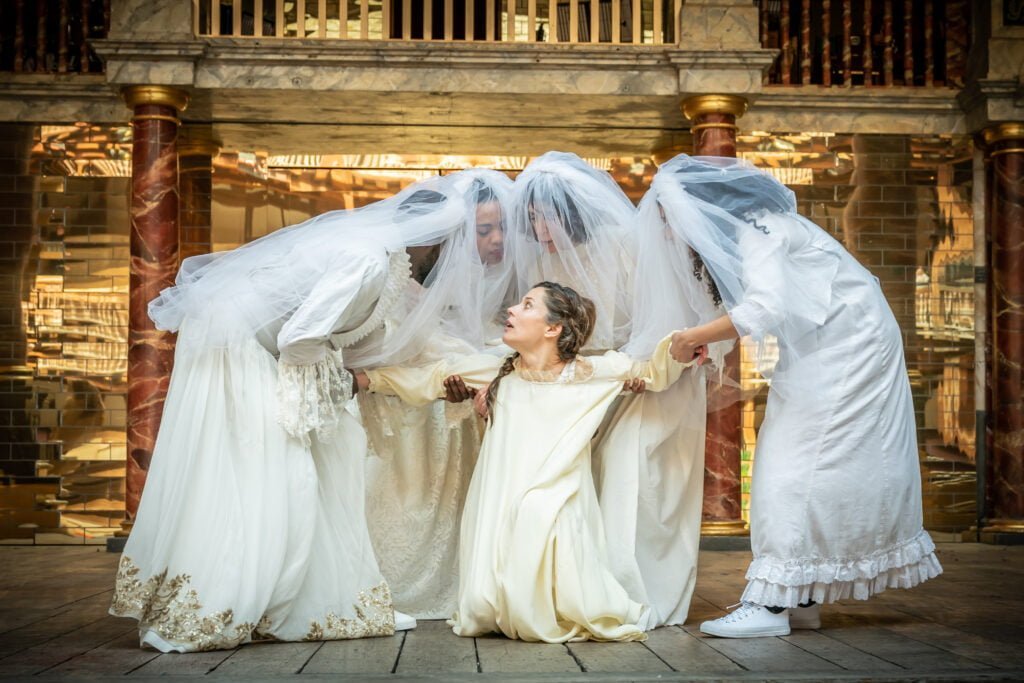
Henry VIII was written when Shakespeare was near the end of his career, in collaboration with a younger writer, John Fletcher.
It’s not often performed, because it’s not a great play, probably because it must have been politically very tricky to write. With Richard III, at least the playwright knew the rules: the saintly Tudor dynasty rescued the country from Richard’s evil dictatorship. With a play about Elizabeth’s father Henry, written just a decade or so after Elizabeth’s death, you could never be quite sure whom you might offend.
Yet there is some splendid writing in it, so you can understand the temptation to turn it into something Shakespeare and Fletcher never intended. The Globe’s resident writer Hannah Khalil does this by plundering the rest of the Shakespeare canon for snippets of dialogue, aiming to make the female characters central to the story.
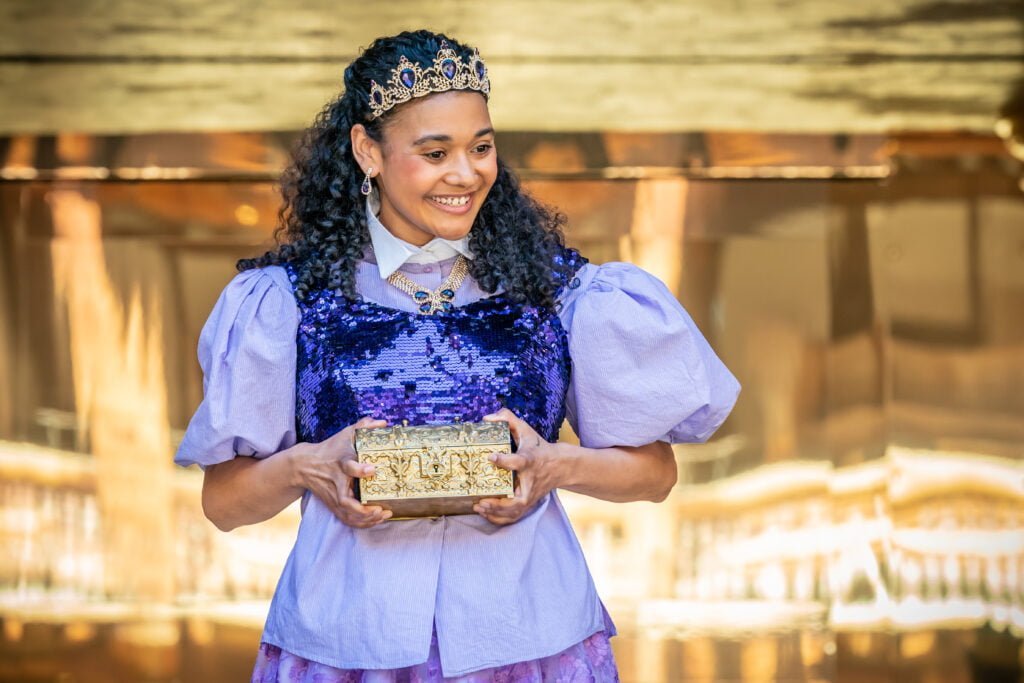
So the future Queen Mary (Natasha Cottriall) tells us, Lear-like, that she “will do such things, what they are as yet I know not, but they shall be the terrors of the earth.” And from Julius Caesar comes the line: “When beggars die there are no comets seen; The heavens themselves blaze forth the death of princes.”
The result is a curate’s egg. Some of it is brilliant. Some of it is simply baffling.
The play takes Henry (Adam Gillen)’s story through the divorce from Katherine of Aragon (Bea Segura), the marriage to Anne Boleyn (Janet Eluk), and the birth of the infant Elizabeth, and ends – for Shakespeare was a careful man – with a speech about what a wonderful queen she would one day become. The villain was not the cruel, capricious king, but his adviser Cardinal Wolsey (Jamie Ballard).
What Khalil has spotted is that it is really about women. We think about the men in Henry’s story – Wolsey, Thomas Cromwell (Esmonde Cole), the Dukes of Buckingham (Jonah Russell) and Norfolk (Baker Mukasa), and the great dictator himself. It is the story of Katherine and Anne and their daughters, Mary and Elizabeth (Debbie Korley), and that is what interests Khalil.
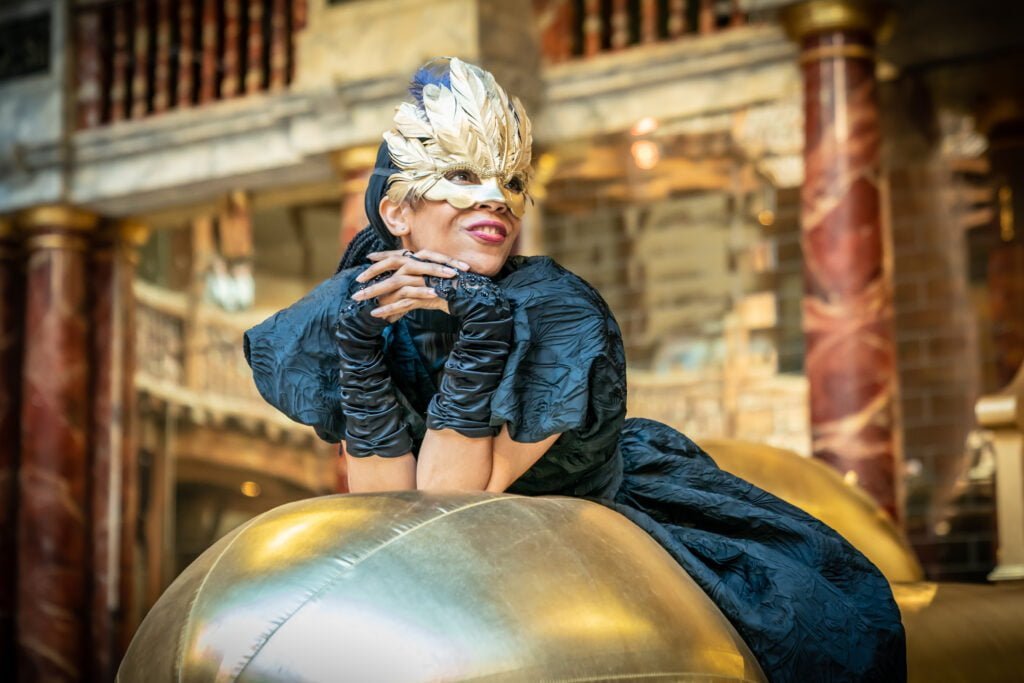
She succeeds best with Katherine, whose story is told with great power and pathos, helped by a brilliant performance from Bea Segura. Even when pleading with her all-powerful husband, Segura remans dignified and apparently in control. In the end, broken and near death, she cuts a heartbreaking but still dignified figure as she writes a letter to her husband pleading for decent treatment for her daughter and the ladies of her household.
This, of course, is only one side of the real Katherine, who was a Spanish Catholic of the time – a child of the inquisition, cruel, bigoted, grim, and doctrinally rigid. But neither Shakespeare nor Khalil are interested in putting that Katherine on the stage, for very different political reasons.
These fine dramatic moments are rather undermined by some very strange decisions, presumably made by director Amy Hodge. King and queen and cardinal in period costume talk with a man dressed puzzlingly in a modern bright pink suit and large spotted bow tie, and another man in a shiny mauve suit. The Earl of Surrey (Esmonde Cole), for some reason, wears velvet shorts over mauve tights, and a mauve stole around his shoulders.
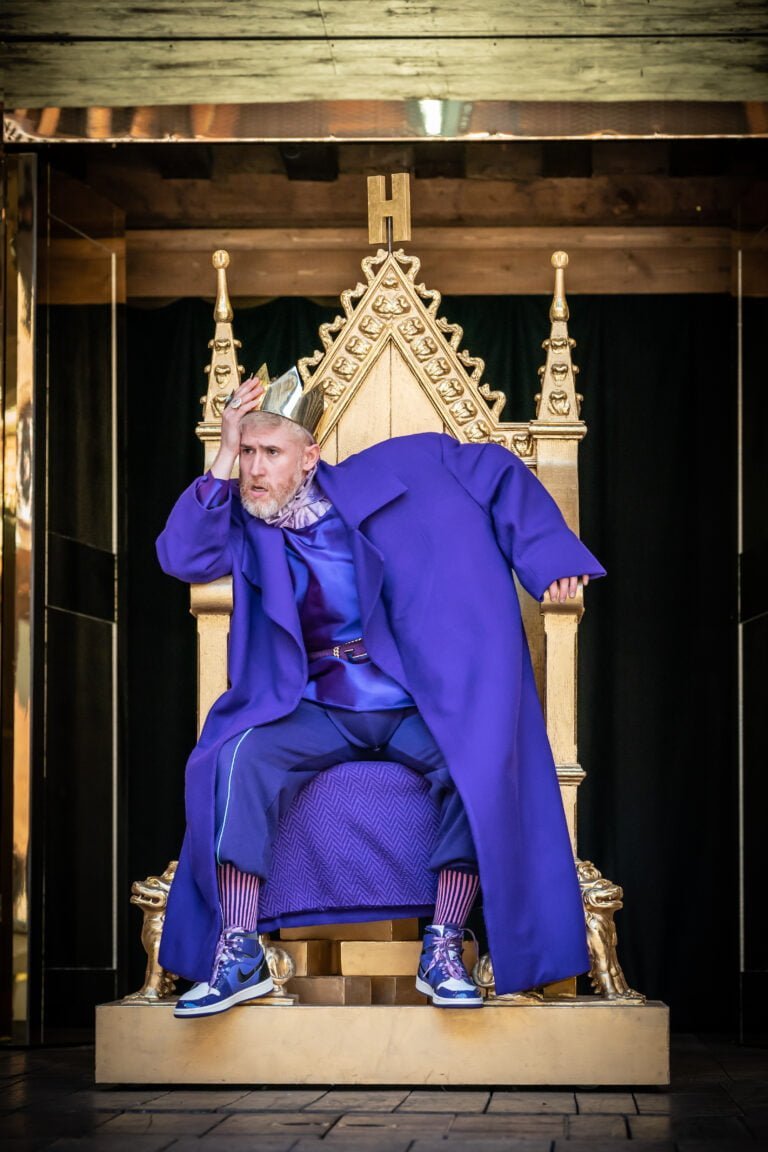
There is a lot of fun with gaudy pink balloons, pretty pink and green inflatable armchairs, and the like, all of which is amusing and unusual but pointless.
I could see the point being made when a huge gold inflatable penis was lowered onto the stage, alongside two vast gold inflatable balls, and one of the women started to caress it, but it felt crass all the same. When I was at a Jesuit boarding school, a rhyme went round about Protestants, attributed, probably wrongly, to Brendan Behan, which made the same point more tersely:
Trust not the alien minister
Nor his creed without reason or faith.
The foundation stone of his temple
Is the bollocks of Henry the eighth.
Henry himself (Adam Gillen) is played for laughs, with all Henry’s brittle egoism and none of his terrifying mercilessness – his rages sound weak and pettish. We see him dressed in his finery, we see him on the lavatory, half naked, and we see him playing with a strategically placed rubber penis.
All this undermines the drama, but is probably inevitable, since it suits both Shakespeare’s purpose and Khalil’s purpose to make Wolsey the real villain of the piece.
This is an interesting evening in the theatre which throws away its chance to be a great one.
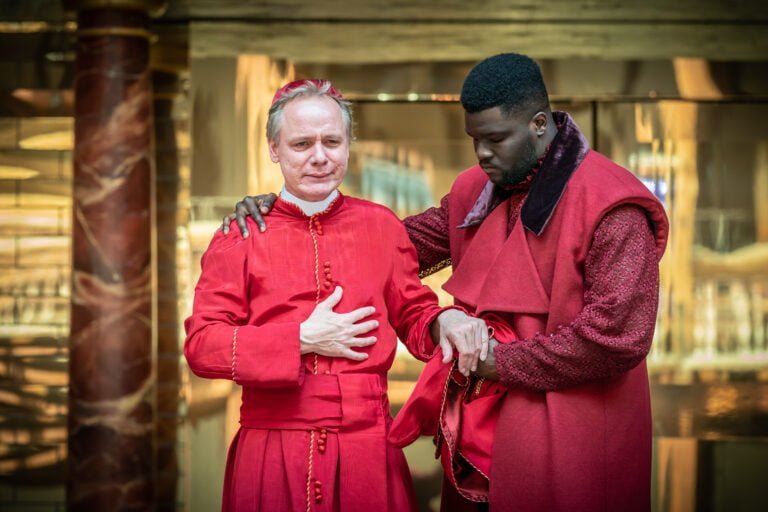
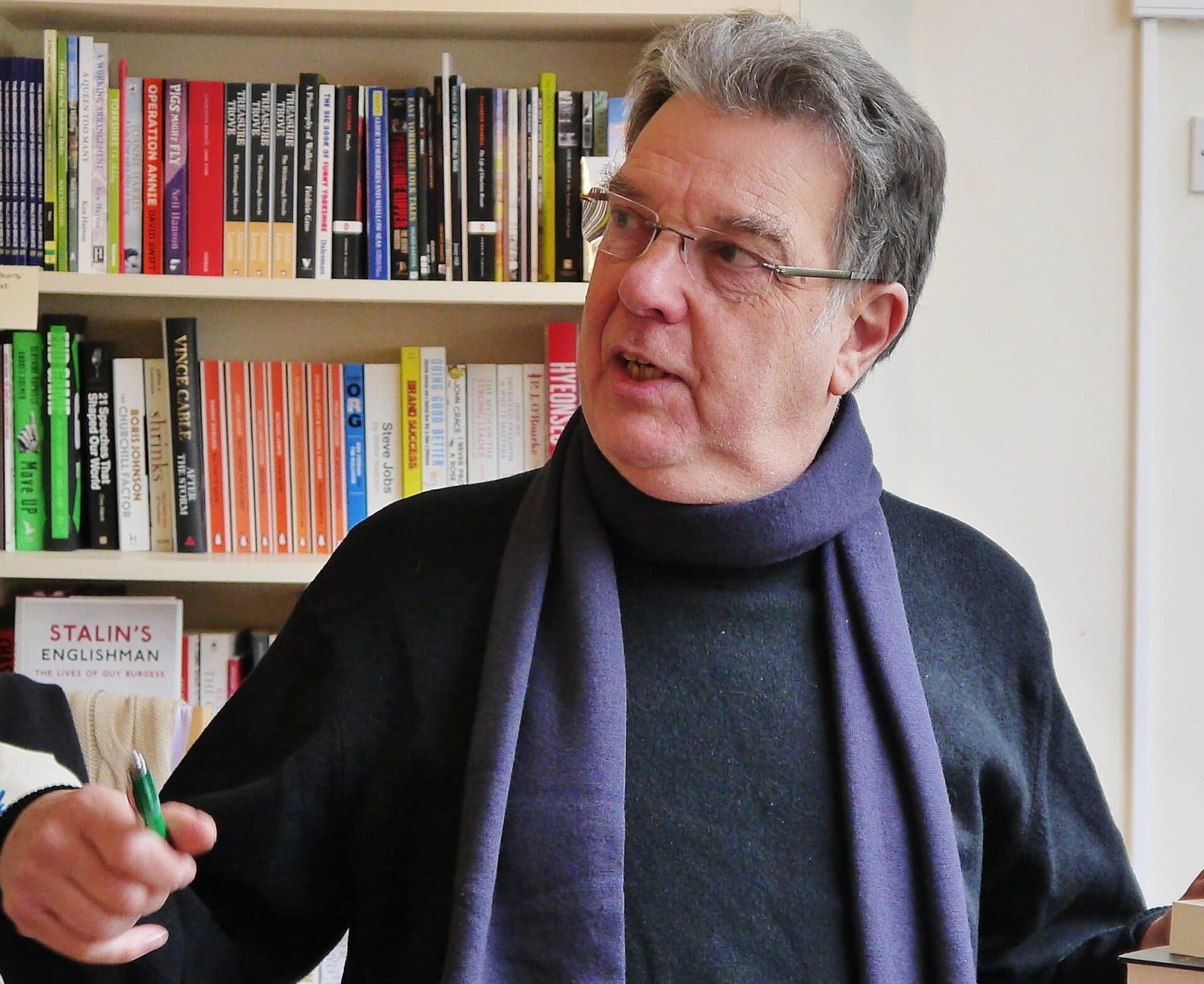
Francis Beckett is an author, journalist, playwright and contemporary historian. He was the 2009 winner of the Ted Wragg Award for lifetime achievement in education journalism.
His latest two plays are A Modest Little Man (about Clement Attlee) and Vodka with Stalin.
Production Notes
Henry VIII
Written by William Shakespeare, Hannah Khalil, John Fletcher
Directed by Amy Hodge
Cast
Starring:
Adam Gillen
Anna Savva
Baker Mukasa
Bea Segura
Debbie Korley
Esmonde Cole
Jamie Ballard
Janet Etuk
Jonah Russell
Kevin McMonagle
Natasha Cottriall
Creatives
Director: Amy Hodge
Movement: Aline David
Designer: Georgia Lowe
Composers: Maimuna Memon, Tom Deering
Sound Designer: Jonathan Deans
Orchestrations: Tom Deering
Fights: RC Annie
Information
Running Time: Two hours 40 minutes with an interval
Booking until 21st October 2022
Theatre:
Shakespeare’s Globe
New Globe Walk
Bankside
London SE1 9DT
Phone: 020 7401 9919
Website: Shakespeare’s Globe
Rail/Tube: London Bridge
Reviewed by Francis Beckett
at the GLOBE
on 26th May 2022
